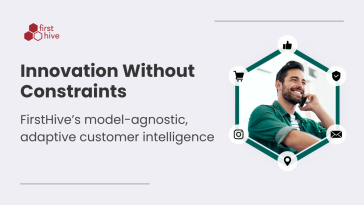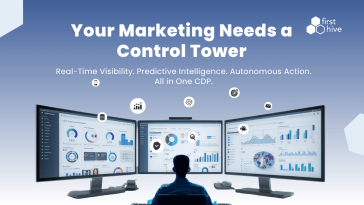The Importance of Marketing Analytics
Marketing analytics is one of the best ways to find out what’s working in your campaigns and what isn’t. It is the practice of collecting and analyzing data from marketing efforts to optimize effectiveness and improve return on investment (ROI). With marketing analytics, you can track and analyze campaign data to gain insights and make data-informed decisions.
So, what is the main goal of marketing analytics? The main goal is to drive growth and achieve marketing objectives. By analyzing data, marketers can understand customer behavior, identify trends, and uncover actionable insights that can guide marketing strategies.
Using Marketing Analytics to Improve Business Growth
Marketing analytics plays a crucial role in improving business growth. It provides valuable insights that can help businesses make data-driven decisions and optimize their marketing efforts. Here are some ways marketing analytics can contribute to business growth:
- Quantify your claims: Marketing analytics allows you to quantify the impact of your marketing campaigns. By tracking and analyzing data, you can measure the success of your campaigns and determine the ROI.
- Turn marketing data into information: Marketing analytics helps you turn raw data into meaningful information. By analyzing data, you can uncover patterns, trends, and insights that can inform your marketing strategies.
- Compare and contrast your marketing data: With marketing analytics, you can compare and contrast different marketing campaigns, channels, and strategies. This allows you to identify what’s working and what’s not, and make data-driven decisions to optimize your marketing efforts.
- Stay goal-oriented: Marketing analytics keeps you focused on your marketing goals. By setting clear goals and tracking relevant metrics, you can measure your progress and adjust your strategies accordingly.
Benefits of Marketing Analytics
There are several benefits of using marketing analytics to drive business growth:
- Improved decision-making: Marketing analytics provides data-backed insights that can guide decision-making. By analyzing data, marketers can make informed decisions that are more likely to lead to success.
- Optimized marketing campaigns: With marketing analytics, you can optimize your marketing campaigns by identifying the most effective channels, messages, and strategies. This can help you improve customer engagement, increase conversions, and drive revenue.
- Better customer understanding: Marketing analytics allows you to gain a better understanding of your customers. By analyzing customer data, you can identify customer preferences, behaviors, and needs. This enables you to tailor your marketing efforts to better meet customer expectations.
- Increased ROI: Marketing analytics helps you maximize your return on investment. By identifying what’s working and what’s not, you can allocate your marketing budget more effectively and optimize your marketing efforts to achieve higher ROI.
Implementing Marketing Analytics
In today’s digital age, marketing analytics has become an essential component of any successful marketing strategy. By leveraging data and insights, organizations can make informed decisions, optimize their marketing efforts, and drive better results. However, adopting marketing analytics into daily processes requires careful planning and execution. Here are the steps to consider:
1. Assess your current data capabilities and infrastructure: Before diving into marketing analytics, it is crucial to evaluate your organization’s existing data capabilities and infrastructure. This includes understanding the sources of data, data collection methods, data storage systems, and data quality. By assessing your current state, you can identify any gaps or areas for improvement.
2. Identify key metrics and KPIs: To effectively use marketing analytics, it is essential to identify the key metrics and KPIs that align with your marketing goals. These metrics can vary depending on your industry, target audience, and specific objectives. For example, if your goal is to increase website traffic, relevant metrics may include website visits, bounce rate, and conversion rate. By defining these metrics, you can track and measure the success of your marketing campaigns.
3. Invest in the right tools and technology: To collect, store, and analyze data, it is crucial to invest in the right tools and technology. There are numerous marketing analytics platforms available in the market, each offering different features and capabilities. It is important to choose a tool that aligns with your organization’s needs and budget. Additionally, consider integrating your marketing analytics tools with other systems, such as customer relationship management (CRM) software, to gain a holistic view of your marketing efforts.
4. Ensure high-quality data: The success of marketing analytics initiatives heavily relies on the quality of data. It is essential to regularly clean and validate your data to ensure accuracy and reliability. This involves removing duplicate or irrelevant data, correcting errors, and standardizing data formats. By maintaining high-quality data, you can make more accurate decisions and derive meaningful insights.
5. Train your team: To effectively use marketing analytics tools and interpret data, it is crucial to train your team. Provide them with the necessary knowledge and skills to navigate the analytics platforms, understand the metrics, and interpret the insights. This can be done through training sessions, workshops, or hiring external experts. By empowering your team with analytics capabilities, you can foster a data-driven culture within your organization.
6. Establish a culture of data-driven decision-making: To fully leverage marketing analytics, it is important to establish a culture of data-driven decision-making within your organization. Encourage your team to rely on data and insights when making marketing decisions, rather than relying solely on intuition or past experiences. This can be achieved by regularly sharing analytics reports, conducting data-driven discussions, and rewarding data-driven successes. By embracing a data-driven culture, you can drive better marketing outcomes and stay ahead of the competition.
While it is not necessary to hire a marketing analytics manager, having dedicated resources or partnering with a marketing analytics agency can greatly contribute to the success of your marketing analytics initiatives. These resources can provide expertise, guidance, and support in implementing and optimizing your marketing analytics processes. Whether you choose to build an in-house team or outsource to an agency, having dedicated resources can ensure that your marketing analytics efforts are effectively executed and yield valuable insights.
Conclusion
Marketing analytics is essential for businesses that want to achieve growth and stay ahead of the competition. By leveraging data and analytics, marketers can gain valuable insights, optimize their marketing efforts, and drive better business results. So, if you want to take your business to the next level, let marketing analytics guide your strategies.








